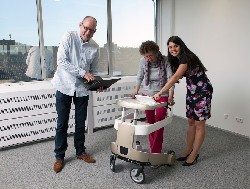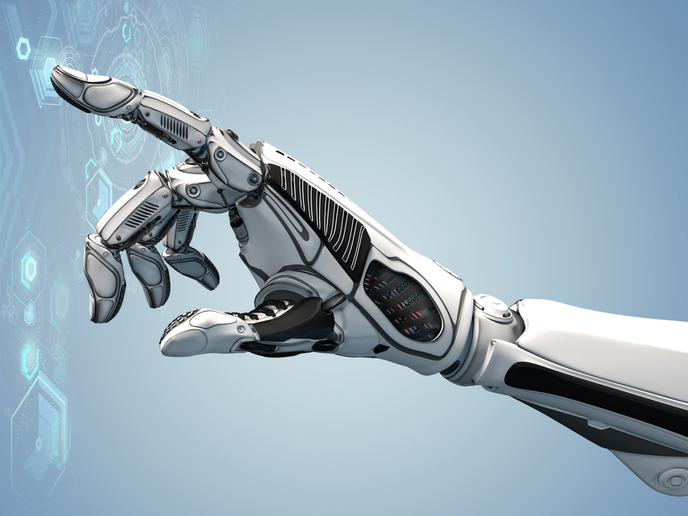Robotic walker equals independent living for Europe’s elderly citizens
Providing adequate care to the elderly is essential to ensuring Europe’s senior citizens are able to spend their later years living a healthy, happy and independent life. But without support, many face loneliness, a lack of mobility and exercise, and forgetfulness on a daily basis. However, thanks to European researchers, with the use of modern technology, Europe’s elderly population can feel young again and lead a much safer and richer life. Promoting the PCP process Spearheading this effort is the EU-funded SILVER project. ‘The project aimed to identify new technologies capable of assisting elderly people in their everyday lives, and also develop tools and support awareness within Europe of the PCP process,’ explains programme manager Jon Hazell. ‘We believed that with the use of robotics and related technologies, the elderly can continue independent living at home, even if they have physical or cognitive disabilities.’ The project used a Pre-Commercial Procurement (PCP) process as a way of promoting innovation in this field. The PCP process was rolled-out in three phases. Following a call for tender and selection process, the project conducted a feasibility study of the selected technologies and proposals, with the most promising ideas being developed into well-defined prototypes in phase two. The third and final phase verified and compared the first real end products or services in real-life situations. ‘In Europe, PCP has so far been an under-utilised tool for promoting innovation,’ says Hazell. ‘One of the aims of the project was to demonstrate the effectiveness of this approach to address such societal and governmental needs as identifying new technologies and services to support the independent living of the elderly.’ Of the 32 tenders received, seven received contracts for feasibility studies in phase 1 and were then invited to submit a bid for Phase 2, with three being awarded contracts for developing prototypes to test. Based on these tests, two contractors were invited to submit a bid for Phase 3, with Robot Care Systems’ Lean Elderly Assistant (LEA) ultimately being awarded a contract to test the prototype with end users in five countries (the United Kingdom, Finland, Sweden, the Netherlands and Denmark). Not your grandmother’s walker On paper, LEA is a robotic, mobile personal assistant designed to enable the elderly to live independently at home. In practice, it is a game-changer. From helping with daily routines and housekeeping to serving as a personal trainer or even dance partner, the robotic stroller/walker system is having a significant impact on those with mobility or cognitive disabilities. ‘LEA can be used to help elderly people at home, in elderly care centres, in rehabilitation clinics and at hospitals,’ says Robot Care Systems CEO Dr. Ing. Maja Rudinac. ‘Regardless of where it is used, we designed it towards the needs of users, based on our analysis of the challenges faced by both the intended user and of care givers.’ Unlike other systems on the market, LEA offers an array of functionalities all available in one device. More so, as all of these modern functionalities come in the form of a stroller and walker, which elderly people are already used to, meaning they won’t be afraid to use it. ‘LEA is stable – you cannot fall, whereas my normal walker is light and you can easily fall,’ says once satisfied user. ‘I was afraid because I have fallen so often, but LEA gives me the confidence to move on my own.’ But even in the case of a fall, the robot’s fall detection system will automatically call for help. Other functionalities include autonomous navigation localised to a user’s home and voice guidance to warn the user about obstacles and how to avoid them. LEA is even capable of coming to the user when summoned. The system provides reminders of daily tasks, along with video conferencing so users can easily chat with friends and family. The system is easily converted back and forth from a walker to a stroller. Next steps LEA is already attracting attention, with RCS having won several innovation contests, including the SHELL WIRE 2015 and RABOBANK Innovation awards. It’s also winning over investors, recently securing over EUR 5 million in additional funding. With this solid foundation in place, certification is expected in the fourth quarter of 2016, with mass market production beginning in the second quarter of 2017.
Keywords
SILVER, LEA, independent living, fall prevention, Robot Care Systems, walker, autonomous navigation, PCP







